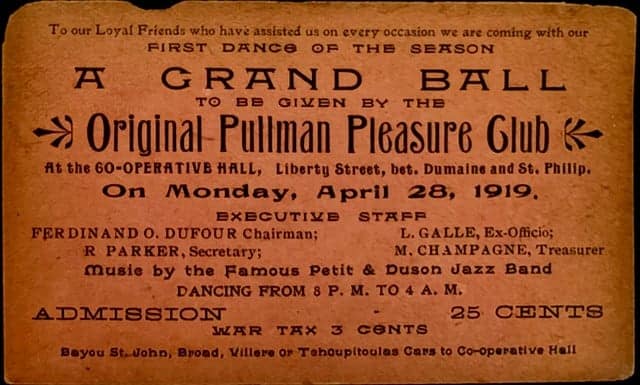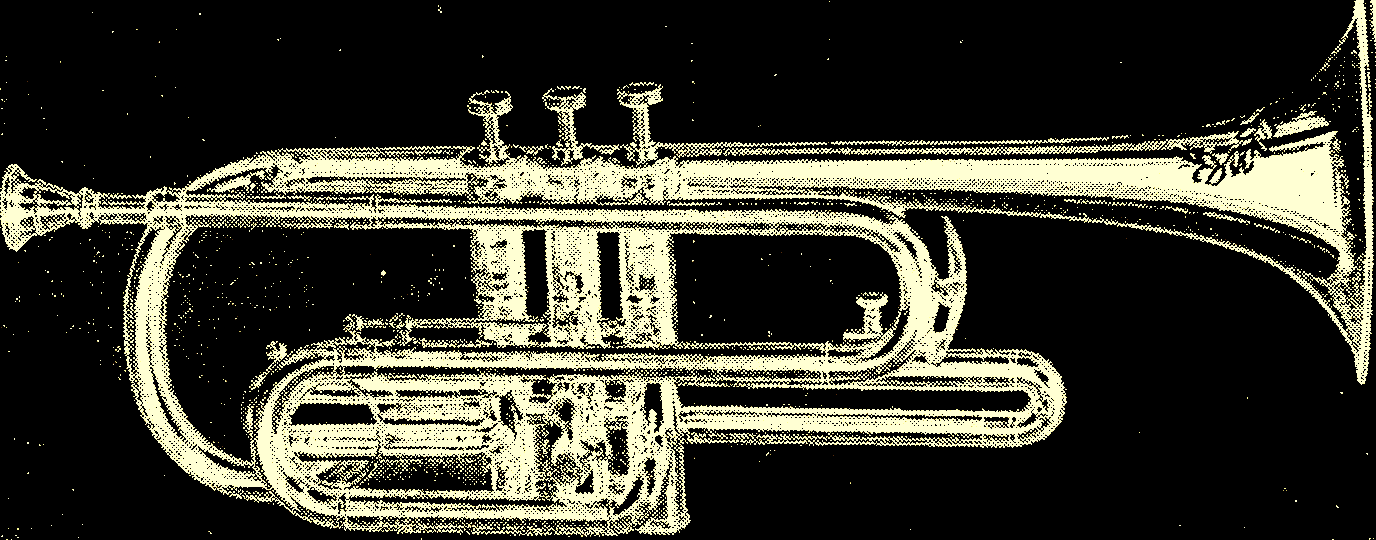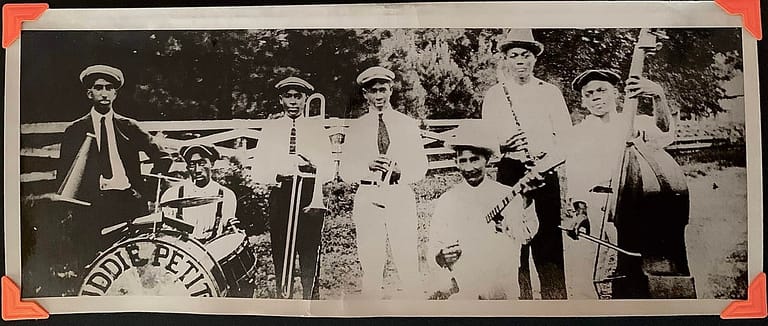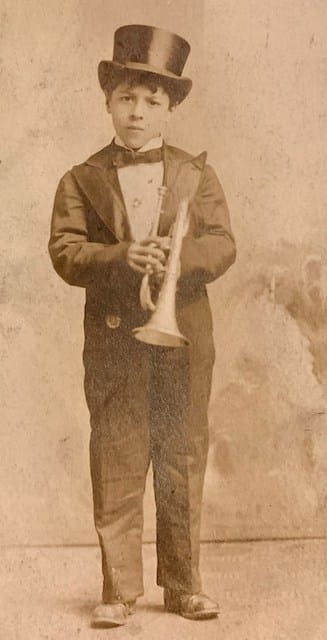BUDDIE PETIT & FRANKIE DUSON
AT NEW ORLEANS JAZZ BALL
1919
The fading orange, two-and-a half by four-inch, thin cardboard dance admission ticket below came from the La Belle Nouvelle Orleans antique store in New Orleans. Probably one-of-a kind, it opens a window into a long-vanished era of early Black jazz in New Orleans from more than one hundred years ago.
Furthermore, it shines a light on two of jazz’s forefathers, cornet/trumpet player Buddie (Buddy) Petit and trombone player Frankie Duson.
As for Co-operative Hall, it was a mere five block walk from New Orleans’ famed “district of sin”, Storyville. Storyville was “officially” shut down in 1917. But it hadn’t gone away.

Duson was there at the beginning and had played trombone with the near-mythical Buddy Bolden in his seminal early jazz band; Frankie was later immortalized in Jelly Roll Morton’s wonderful recording of “Buddy Bolden’s Blues”: “I thought I heard Frankie Duson shout….”
For many years after his early death Petit was remembered fondly by New Orleans old-timers as the city’s greatest jazz horn player who never recorded. Petit’s legendary cornet and trumpet skills may have influenced Louis Armstrong’s early horn playing more than those of his mentor, King Oliver. And in 1919, Buddie was at the height of his musical powers.

Beyond Petit’s and Duson’s musical skills each had unique abilities in successfully promoting and running their own individual bands, and filling them with the best Black jazzmen in New Orleans. Musicians who worked for Duson and Petit constituted a “who’s who” of famous jazz musicians: King Oliver, Bunk Johnson, Sidney Bechet, Johnny Dodds, Baby Dodds, Freddie Keppard, Pops Foster, Jimmie Noone, Kid Ory, and more.
After Buddy Bolden’s mental breakdown in 1906, Duson assumed control of the Bolden band, renaming it the Eagle Band. Petit latter joined the group, and the two soon became running buddies.
Into the early 1920s Duson and Petit would play in each other’s bands, play together in the bands of compatriots, and sometimes join forces to put together “pick-up” bands for special occasions, which is probably what led to them playing together as “The Famous Petit & Duson Jazz Band” on April 28, 1919, at the Co-operative Hall on Liberty Street in New Orleans.
By 1919, both Duson and Petit were indeed “famous” jazz musicians in New Orleans. World War I had ended, a lot of Black soldiers were coming home, the Spanish Influenza was winding down, and Prohibition was still months away.
If you think this was some refined, genteel affair at Co-operative Hall, which often hosted jazz balls, think again. Mixed with the dancers there would be gamblers, hustlers, pimps, and whores—plus razor blades, knives, and guns. Marijuana, morphine, and cocaine were readily available. Plus, Buddie might be taking an occasional hit of his “luck powder”.
Folks came to party that night!

The Buddie Petit band in Covington, Louisiana, 1920. Petit in center with cornet.
To learn more about Buddie Petit, Frankie Duson, and Co-operative Hall in New Orleans, press the button below.
All ephemera from the Bowman collection.

